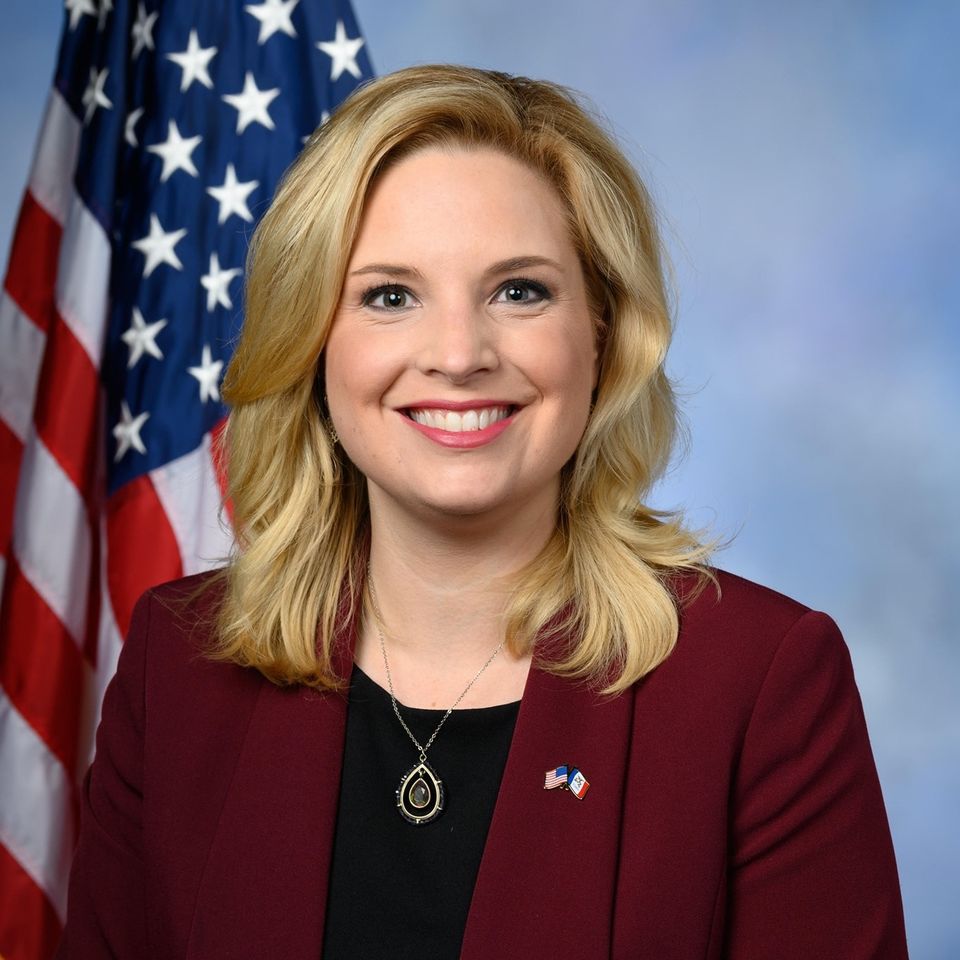Congresswoman Ashley Hinson (IA-01) and House Republican Conference Chairwoman Elise Stefanik (NY-21) sent a letter to the Commissioner of the U.S. Food and Drug Administration regarding the nationwide baby formula shortage that has reached a crisis level. The Congresswomen, both mothers, called on the agency to provide a clear timeline for when baby formula inventory is expected to be sufficiently restocked as well as a long-term plan to minimize supply chain disruptions for baby formula.
“We have heard from constituents about this issue – parents who are unsure how to provide this essential sustenance for their babies and worried about the nutritional impacts of this supply chain shortage. As moms ourselves, we know the stress this is causing in so many households,” wrote the Congresswomen. “The infant formula shortage is yet another example of how this Administration’s supply chain crisis is harming working families. This crisis has now come home to America’s kitchen tables, as families do not know how to feed their children.”
“Working families are already worried about how much their groceries are going to cost because of inflation, and now, parents have the added stress of not knowing if the baby formula they need will even be in stock,” said Congresswoman Hinson. “The Biden Administration must prioritize fixing supply chain disruptions and getting baby formula back on the shelves. I’ll work with anyone who will work with me to ensure that families don’t have this extra burden.”
“Parents can’t wait weeks for baby formula,” Stefanik said. “Bare Shelves Biden’s failed policies have created and worsened this supply chain crisis, and our families are paying the price. I’m proud to bring the concerns of mothers to the highest levels by demanding answers from the FDA on their actions to immediately address this crisis and prevent it from happening again. Our families deserve certainty.”
Read the full text of the letter below:
The Honorable Dr. Robert M. Califf
Commissioner of Food and Drugs
U.S. Food and Drug Administration
10903 New Hampshire Avenue
Silver Spring, MD 20993-0002
Dear Commissioner Califf:
We write today to express great concern with the ongoing shortage of infant formula across the United States. We have heard from constituents about this issue – parents who are unsure how to provide this essential sustenance for their babies and worried about the nutritional impacts of this supply chain shortage. As moms ourselves, we know the stress this is causing in so many households.
This comes at a time when working families are already struggling with smaller paychecks resulting from this Administration’s inflationary policies. Wages do not go as far as they did a year ago, inflation has risen over 8.5 percent (the highest rate in over 40 years), and families are making tough decisions between filling up their gas tanks and filling up their grocery carts. Now, it is no longer even an option to add infant formula to the cart – there is none on the shelf to buy.
The infant formula shortage is yet another example of how this Administration’s supply chain crisis is harming working families. This crisis has now come home to America’s kitchen tables, as families do not know how to feed their children. According to your own agency’s data, 67 percent of children (2.7 million babies) “rely on infant formula for some portion of their nutrition” by the age of three months. This crisis must be addressed.
Make no mistake, the families suffering the most from this infant formula supply chain crisis are some of our most vulnerable. Rural Americans are unable to procure formula entirely in some communities. This includes the parents and children we represent in Northeast Iowa and Upstate New York. Babies who need specialty formula for medical conditions are suffering. Families that depend on the Special Supplemental Nutrition Program for Women, Infants, and Children (WIC) are at a loss.
This supply chain crisis-induced infant formula shortage is only worsening. According to a recent CNN report, six states, including Iowa, were sold out of more than half of their infant formula for the week of April 24th, and “26 states are now struggling with supply.” This is not an idle concern for the Administration to ignore like it does with its other crises – this is a life-or-death matter for many families. Roughly 40 percent of the nation’s infant formula is out of stock; in the last two weeks alone, the percentage of out-of-stock infant formula has jumped 9 percent.
This has caused panic in communities across the country, as popular stores turn to rationing formula to make their stock last. Parents should never be in a position of not knowing where to procure formula for their babies. Frankly, these empty shelves are unacceptable. Families deserve better.
The families we represent need answers, and they need certainty. As such, we respectfully request answers to the following questions:
- What is the current status of the immediate shortage and when does the U.S. Food and Drug Administration (FDA) anticipate shelves to be restocked of infant formula fully to pre-shortage levels? Please provide a clear timeline for when inventory is expected to return to sufficient levels.
- What steps has the FDA taken to minimize the impact of the immediate shortage?
- What measures should be taken in the long term to minimize supply chain disruptions for an essential product for families?
- To what extent is the FDA communicating directly with states and major retail stockists pertaining to this shortage?
- Is the FDA currently working on plans to collaborate with manufacturers to increase production, imports, general supply, FDA approvals, and nationwide availability of infant formula products?
- What are the FDA’s plans to monitor this sort of critical supply moving forward?
- White House Press Secretary Jen Psaki stated on May 9, 2022, that the FDA is taking “a number of steps” to address this infant formula shortage, including prioritizing product lines that are of the greatest need. Can you share what this prioritization involves?
- Is the FDA tracking specific community-based need and intending to prioritize supply to rural Americans and other under-served communities that are currently experiencing the highest shortages?
- Is the FDA planning to rearticulate its 21 FORWARD program to address post-pandemic supply chain crises like this one? If so, please explain how.
Thank you for your prompt attention to this matter.
Sincerely,
Congresswoman Ashley Hinson
Congresswoman Elise Stefanik












